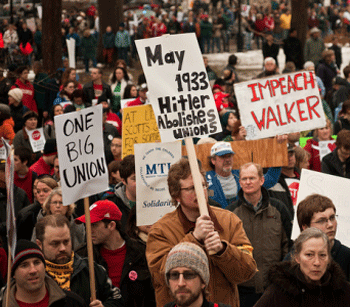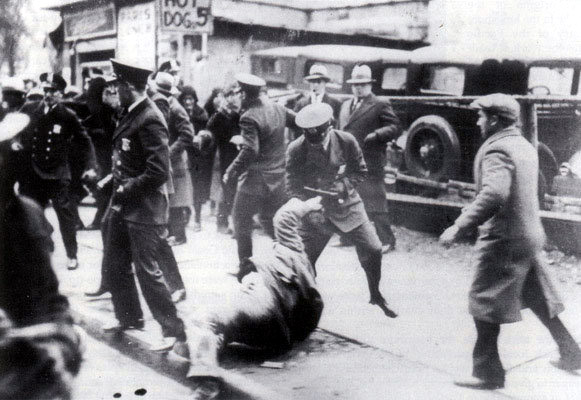
There are some things you just never expect to see. Shrimp ice cream. World peace. An openly gay republican president.
Or, workers in the United States facing the loss of their collective bargaining rights.
“The right to bargain collectively is at the bottom of social justice for the worker, as well as the sensible conduct of business affairs. The denial or observance of this right means the difference between despotism and democracy.” Franklin Delano Roosevelt, in an address to the Senate, May 8, 1937.
These rights have been a mainstay of US labor law for nearly 80 years, first coming into being as part of Roosevelt’s New Deal legislation in the National Industrial Recovery Act of 1933 – later codified as the National Labor Relations Act (NLRA).
Public employees gained bargaining rights somewhat later – in the case of Wisconsin, about 60 years ago.
Now the government didn’t just grant employees the right to organize out of benevolence; no, these rights were hard won with the blood of workers.
The 50 years leading up to Roosevelt’s New Deal were filled with costly and often exceptionally violent strikes. Many workers and not a few scabs died. Employers lost millions in productivity.

